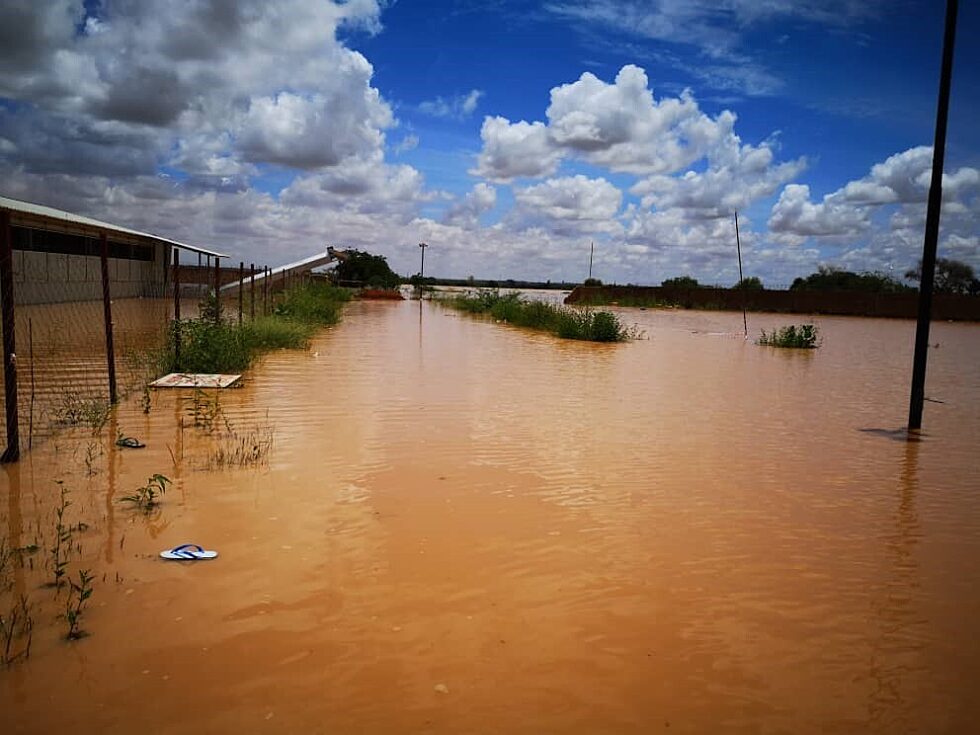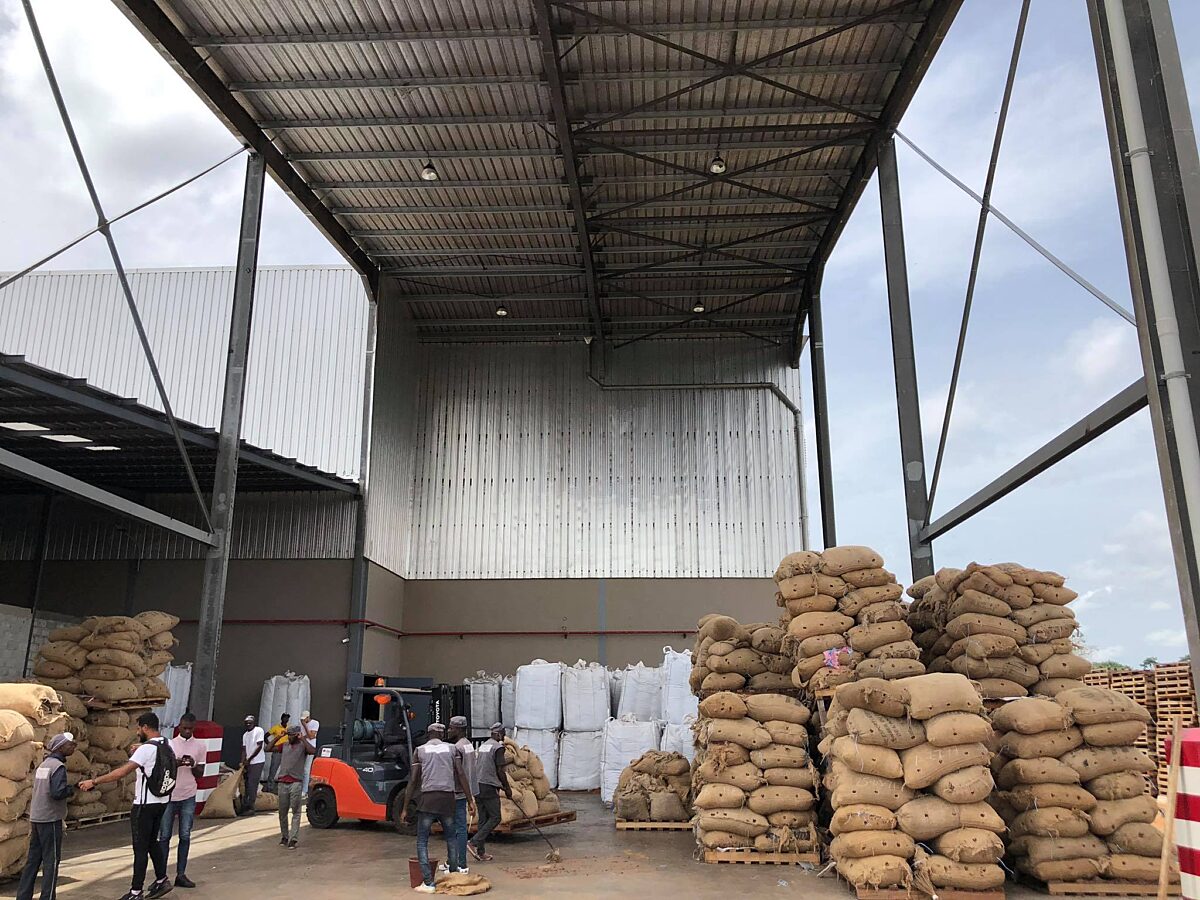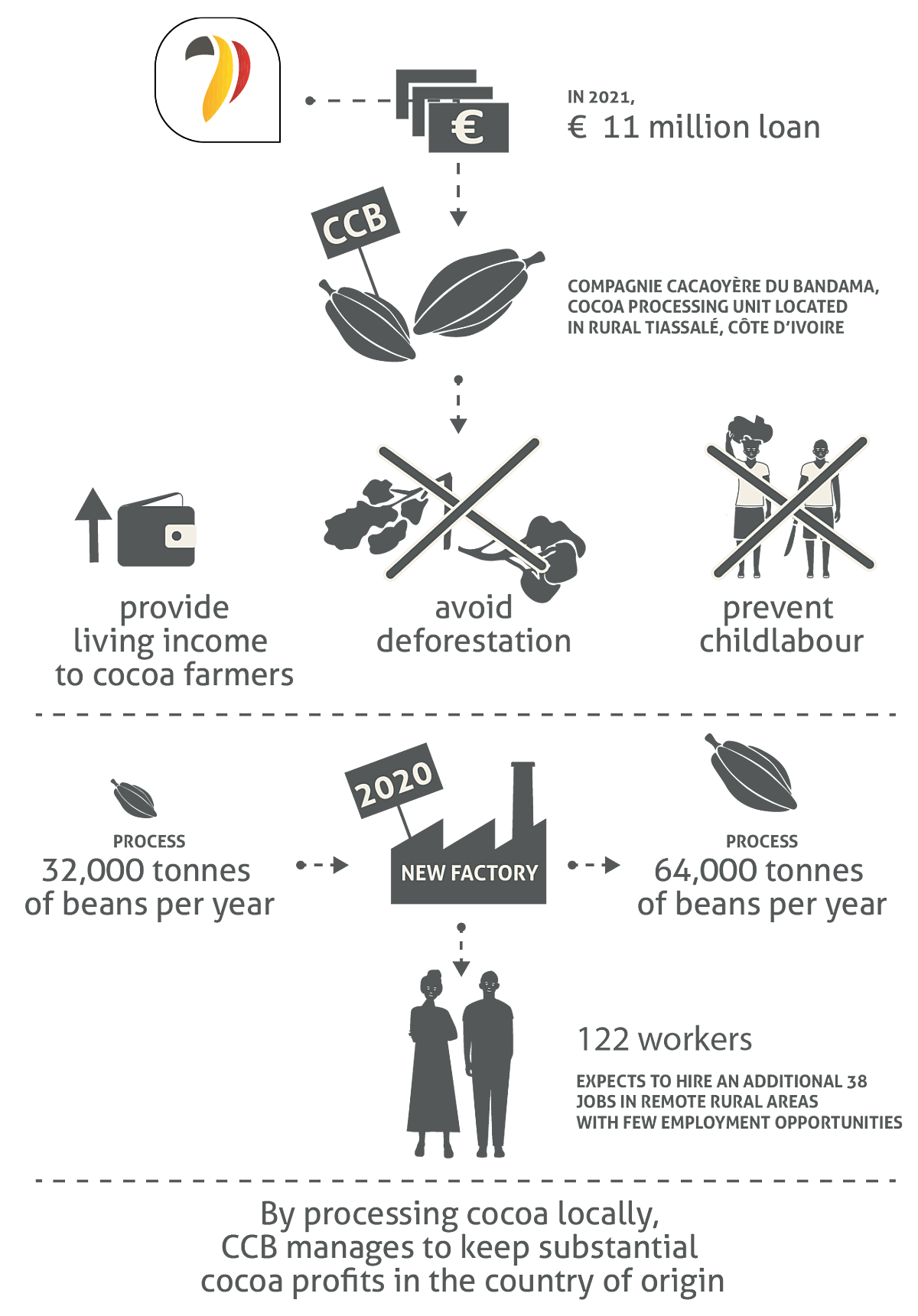Responsible production and consumption
To BIO, it is crucial that we support the shift to sustainable production practices and that we decouple economic growth from resource use. This is key to sustain the livelihoods of current and future generations.
International sustainability standards for agriculture and forestry projects encourage companies to use fewer natural resources and produce less greenhouse gasses, pollutants, and waste. Labels like Organic, Fairtrade, UTZ, Rainforest Alliance, FSC, and PEFC all contribute to sustainable consumption and production.
BIO offers technical assistance subsidies to help implement these standards. Two out of the four direct investments in the agriculture value chain approved in 2022 are sourcing and processing products that are Organic- and/or Fairtrade-certified, most often a secondary but increasing share of their activities. BIO also contributes to SDG12 by promoting production processes and services that respond to basic needs and bring a better quality of life. At the same time, it minimises the use of natural resources and limits the emissions of greenhouse gasses, pollutants, and waste.
BIO also invests in sustainably managed forests to sequester carbon emissions and promotes the use of green loans. These are used to finance climate projects, to prevent and control pollution, and to sustainably manage natural resources such as land, water and wastewater.
Sustainable cocoa
BIO is a signatory to the Beyond Chocolate partnership that promotes a sustainable Belgian chocolate industry. It unites the chocolate and retail sector, civil society, social impact investors, trade unions, and universities.
BIO has three main E&S objectives, based on IFC Performance Standard 3.
- BIO wants its clients to avoid or minimise any adverse impacts on human health and the environment by avoiding or minimising pollution.
- BIO advocates a more sustainable use of resources, especially of energy and water.
- BIO wants to reduce project-related greenhouse gas emissions.
BIO requires at the very least that its customers avoid or minimise the release of pollutants to air, water, and land. If possible, the company is also encouraged to transform its waste into energy.
Moreover, all of BIO’s new direct investments are assessed by E&S-experts who suggest improvements in waste management, water consumption, and energy consumption.
BIO also requires companies to protect and conserve biodiversity and to maintain ecosystem services, following IFC Performance Standard 6 and the International Convention on Biological Diversity.

Although climate change is a global challenge, developing countries are particularly vulnerable because of their higher exposure to risks, higher sensitivity to impacts and lower ability to adapt to the changes.

BIO is currently updating its climate strategy to meet the commitments made in the EDFI statement on climate and energy finance, and to align with market best practices and with the climate ambition of the Belgium government. BIO has defined five priorities for its climate strategy:
- Set out the ambition and methodology to ensure new investments are aligned with the goals of the Paris Agreement
- Calculate the greenhouse gas emissions of BIO's investment portfolio (including direct and indirect emissions) in line with the Partnership for Carbon Accounting Financials (PCAF), and work towards the decarbonisation of its portfolio in line with the Paris Agreement's long-term temperature goals
- Develop and disclose BIO's approach to climate risks and opportunities management, in line with international standards, such as the recommendations of the Task Force on Climate-related Financial Disclosures (TCFD)
- Formalise, in BIO's investment process, a climate approach for both climate mitigation and adaptation (including engagement with clients and internal capacity building)
- Seek ways to cooperate with other European Development Finance Institutions and other Belgian development cooperation actors
To support this process, BIO has expanded its sustainability team with a dedicated senior climate officer who will coordinate the climate strategy. BIO will also build on the recommendations stemming from the analysis of eleven case studies on climate-related risks and opportunities in BIO’s portfolio, performed by an external consultant in 2021.
Compagnie Cacaoyère du Bandama
Cocoa is crucial to the Ivory Coast. It represents 10 to 15% of GDP, nearly 40% of export earnings, and provides a living to about one-fifth of the population.
The Compagnie Cacaoyère du Bandama (CCB) is a cocoa processing unit located in rural Tiassalé, Côte d’Ivoire. The company directly employs 122 workers and expects to hire an additional 38. These are jobs in remote rural areas with little industrialisation and limited job opportunities. Indirectly, CCB provides opportunities to tens of thousands of cocoa producers and their families by buying up large volumes of cocoa beans. This is done via 50 suppliers, of which 10 are local cooperatives working with 20,000 smallholders. CCB is UTZ, Fairtrade and FSCC 22000-certified.

It was a mutual learning opportunity to define with CCB how to best support the improvement of their supply chain management.

In 2021, BIO provided them with a EUR 11 million loan to further their sustainability scheme, which addresses and aims to mitigate some of the main challenges within the cocoa supply chain, such as:
- how to provide a living income to cocoa farmers,
- how to avoid deforestation, and
- how to prevent child labour.
This is done, amongst others, by using longer-term supply contracts and a clear procurement policy. CCB is also working on complete traceability in line with recent European regulations against imported deforestation. Finally, CCB is expanding its internal sustainability programme and will have it monitored and verified by an independent third party.
Previously, CCB had the capacity to process 32,000 tonnes of beans per year. Since 2020, with the construction of its new factory equipped with the most modern processing machines, including a cocoa liquor line, this has been doubled to 64,000 tonnes. This should help to meet the Ivorian government’s objective of reaching 100% locally processed cocoa by 2025, keeping the added value in the country.
By processing cocoa locally, CCB manages to keep substantial cocoa profits in the country of origin instead of abroad. Hence, BIO’s investment supports the development of a local processing industry and upgrades Ivory Coast’s cocoa value chain.

